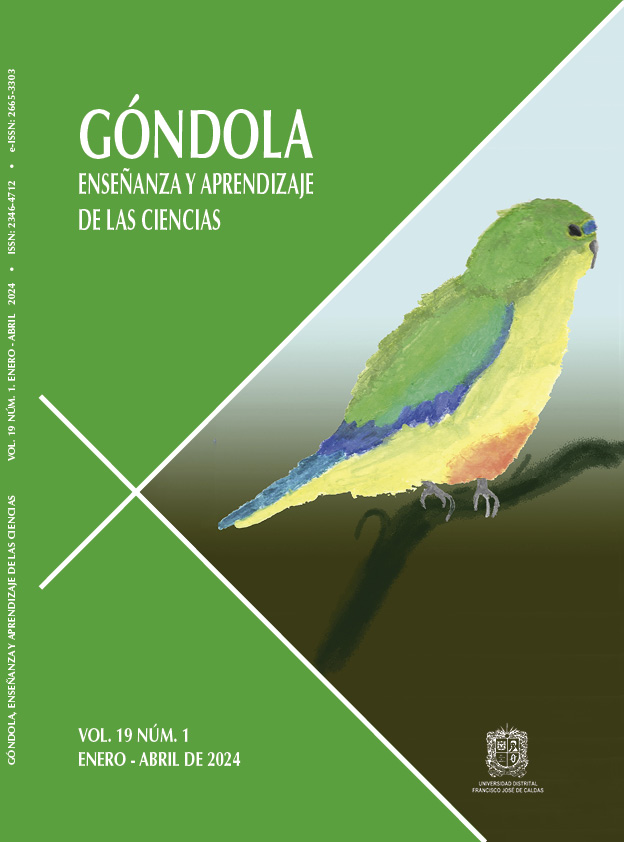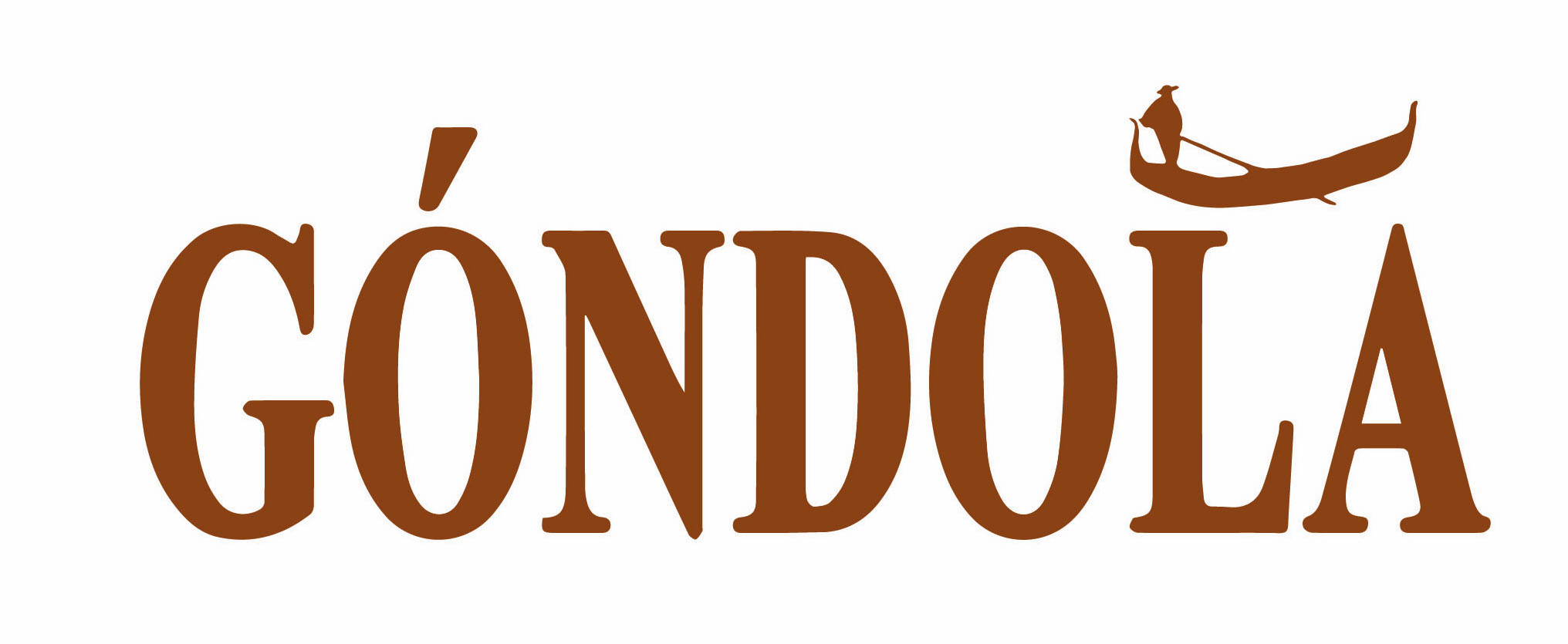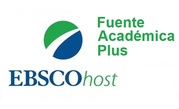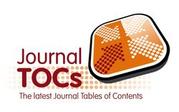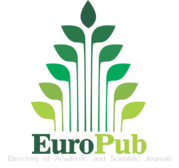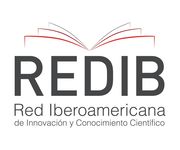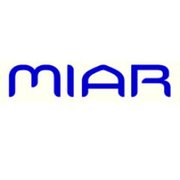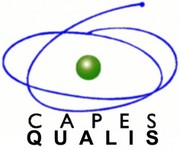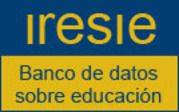DOI:
https://doi.org/10.14483/23464712.21094Published:
2024-02-20Impacto de actividades de desarrollo profesional en las practicas docentes de matemáticas en colombia. Un estudio cuantitativo.
Professional development impact on colombian mathematics teaching practices. A quantitative study.
Impacto das atividades de desenvolvimento profissional nas práticas de ensino de matemática na colômbia. Um estudo quantitativo.
Keywords:
desarrollo profesional, Práctica pedagógica, Análisis de regresión, Formación de profesores, Educación Matemática (es).Downloads
Abstract (es)
Asumiendo la importancia que tienen las actividades de desarrollo profesional para el mejoramiento de la enseñanza de las matemáticas y la falta de estudios correlaciones entre estos dos aspectos, se realizó un estudio cuantitativo en el que se tomaron respuestas de 835 profesores de matemáticas en ejercicio para identificar qué tanto es el impacto de diferentes tipos de actividades de desarrollo profesional en sus prácticas docentes. Inicialmente, se presenta una breve discusión acerca del término desarrollo profesional para luego esclarecer a qué hace referencia la expresión actividades de desarrollo profesional -ADP- y concluir la sección con la pregunta de investigación: ¿Qué tanto influyen los diferentes tipos de actividades de desarrollo profesional en las prácticas docentes de matemáticas en Colombia? Posteriormente se presentan aspectos metodológicos en los que, usando la regresión logística como método de análisis, se identificó que la participación en cursos o seminarios virtuales tienen mayor posibilidad de impactar las prácticas docentes. Seguido de este tipo de actividad, la participación en conferencias educativas, la participación en programas de educación formal y la lectura de literatura profesional también tienen mayores posibilidades de impactar las prácticas docentes en matemáticas. Aunque estos son los resultados principales, en las conclusiones se interpretan otras relaciones identificadas y se dan algunas sugerencias utilizando también diferentes hallazgos reportados en la literatura. Por ejemplo, se recomienda el apostarle a la creación de cursos o seminarios virtuales como un mecanismo para tener un mayor impacto positivo en las prácticas docentes de profesores de matemáticas en ejercicio; también se recalca la importancia de fortalecer los eventos académicos en educación matemática y de crear, en el marco de los programas de desarrollo profesional, redes de profesores de manera intencionada para que el impacto positivo en las prácticas docentes de matemáticas sea aún mayor.
Abstract (en)
In this report, professional development is assumed as fundamental for the improvement of teaching mathematics. Additionally, there is a lack of studies that consider correlations between those two aspects. In this research, I assumed those facts to make a quantitative study. In this study, I considered 835 in-service mathematics teachers’ answers to identify to what extend different types of professional development impact teaching practices. First, I introduce a brief discussion about the term professional development and the expression professional development activities -PDA (ADP)-. Then, I conclude the section with the research question: to what extend do the different types of professional development activities influence mathematics teaching practices in Colombia? Later, I present methodological aspects. By using logistic regression as the analysis method, I identified that the participation in online courses or seminars has the highest possibility to impact teaching practices. The impact of this type of PDA is followed by the impact of the participation in: educative conferences, formal qualification programs, and reading professional literature. Although those are the main findings, I interpret other identified relationships and I give some suggestions using different findings from the literature. For instance, I recommend the creation of online seminars or courses as a way to have higher positive impact in the in-service mathematics teaching practices. I also highlight strengthening conferences in mathematics education. Additionally, I post that teacher networks should be intentionally created in professional development programs to increase the positive impact of these programs in the mathematics teaching practices.
Abstract (pt)
Assumindo a importância das atividades de desenvolvimento profissional para a melhoria do ensino de matemática e a falta de estudos de correlação entre esses dois aspectos, foi realizado um estudo quantitativo no qual foram coletadas respostas de 835 professores de matemática em exercício para identificar o quanto o impacto de diferentes tipos de atividades de desenvolvimento profissional está em suas práticas de ensino. Inicialmente, é apresentada uma breve discussão sobre o termo desenvolvimento profissional para, em seguida, esclarecer a que se refere a expressão atividades de desenvolvimento profissional -ADP- e concluir a seção com a questão de pesquisa: O quanto os diferentes tipos de atividades de desenvolvimento profissional influenciam nas práticas de ensino de matemática Na colômbia? Posteriormente, são apresentados aspectos metodológicos nos quais, utilizando a regressão logística como método de análise, identificou-se que a participação em cursos ou seminários virtuais tem maior possibilidade de impactar as práticas docentes. Seguindo esse tipo de atividade, a participação em conferências educacionais, a participação em programas de educação formal e a leitura de literatura profissional também têm maior probabilidade de impactar as práticas de ensino em matemática. Embora estes sejam os principais resultados, nas conclusões interpretam-se outras relações identificadas e dão-se algumas sugestões, recorrendo também a diferentes achados referidos na literatura. Por exemplo, recomenda-se apostar na criação de cursos ou seminários virtuais como mecanismo para ter um maior impacto positivo nas práticas pedagógicas dos professores de matemática em exercício; Também é destacada a importância de fortalecer eventos acadêmicos em educação matemática e criar, no âmbito de programas de desenvolvimento profissional, redes de professores intencionalmente para que o impacto positivo nas práticas de ensino de matemática seja ainda maior.
References
Ball, D. L., & Bass, H. (2002). Toward a practice based theory of mathematical knowledge for teaching. In E. Simmt & B. Davis (Eds.), 2002 Annual Meeting of the Canadian Mathematics Education Study Group (pp. 3-14).
Ball, D. L., & Cohen, D. K. (1999). Developing practice, developing practitioners: toward a practice-based theory of professional education. In G. Sykes & L. Darling-Hammond (Eds.), Teaching as the Learning Profession: Handbook of policy and practice (pp. 3-32). Jossey Bass.
Ball, D. L., & Forzani, F. M. (2010). Teaching skillful teaching. Educational Leadership, 68(4), 40-45.
Bellibaş, M. Ş., Gümüş, S., & Liu, Y. (2020). Does school leadership matter for teachers' classroom practice? The influence of instructional leadership and distributed leadership on instructional quality. School Effectiveness and School Improvement, 0(0), 1-26. https://doi.org/10.1080/09243453.2020.1858119
Boesen, J., Helenius, O., Bergqvist, E., Bergqvist, T., Lithner, J., Palm, T., & Palmberg, B. (2014). Developing mathematical competence: From the intended to the enacted curriculum. Journal of Mathematical Behavior, 33(1), 72-87. https://doi.org/10.1016/j.jmathb.2013.10.001
Boström, E., & Palm, T. (2020). Expectancy-value theory as an explanatory theory for the effect of professional development programmes in formative assessment on teacher practice. Teacher Development, 24(4), 539-558. https://doi.org/10.1080/13664530.2020.1782975
Bryk, A. S., Gomez, L. M., Grunow, A., & LeMabieu, P. G. (2015). Learning to improve. How America's schools can get better at getting better. Harvard Education Press.
Cervera Quintero, J. P. (2021). Conectividad de Internet en Colombia y su relación con los Objetivos de Desarrollo Sostenible (2015-2020). Ciencia y Poder Aéreo, 16(1), 39-54. https://doi.org/10.18667/cienciaypoderaereo.705
Darling-Hammond, L., Hyler, M. E., & Gardner, M. (2017). Effective teacher professional development (Issue June). Learning Policy Institute. https://doi.org/10.54300/122.311
Datnow, A. (2018). Time for change? The emotions of teacher collaboration and reform. Journal of Professional Capital and Community, 3(3), 157-172. https://doi.org/10.1108/JPCC-12-2017-0028
Desimone, L. M. (2009). Improving impact studies of teachers' professional development: Toward better conceptualizations and measures. Educational Researcher, 38(3), 181-199. https://doi.org/10.3102/0013189X08331140
Desimone, L. M., Porter, A. C., Garet, M. S., Yoon, K. S., & Birman, B. F. (2002). Effects of professional development on teachers' instruction: Results from a three-year longitudinal study. Educational Evaluation and Policy Analysis, 24(2), 81-112. https://doi.org/10.3102/01623737024002081
Dogan, S., & Adams, A. (2020). Augmenting the effect of professional development on effective instruction through professional communities. Teachers and Teaching: Theory and Practice, 26(3-4), 326-349. https://doi.org/10.1080/13540602.2020.1832064
García Jaramillo, S., Maldonado Carrizosa, D., Perry Rubio, G., Rodríguez Orgales, C., & Saavedra Calvo, J. E. (2014). Tras la excelencia docente. https://www.fundacioncompartir.org/pdf/Tras%20la%20excelencia%20docente%20-%20estudio%20final.pdf
Gil Chaves, D. (2016). Una mirada sistémica de los programas de formación de profesores de matemáticas. Revista Horizontes Pedagógicos, 18(1), 110-125. https://dialnet.unirioja.es/servlet/articulo?codigo=5676754
Gil Chaves, D. (2019). Una propuesta para estudiar la complejidad de los programas de formación de profesores de matemáticas. Revista Científica, 34(1), 7-19. https://doi.org/10.14483/23448350.13552
Gómez Mulett, A. S. (2018). La educación matemática en Colombia: origen, avance y despegue. Fides Et Ratio, 16, 123-145. http://www.scielo.org.bo/pdf/rfer/v16n16/v16n16_a08.pdf
Guacaneme, E. A., Obando, G., Garzón-Alvarado, D., & Villa-Ochoa, J. A. (2013). Informe sobre la formación inicial y continua de profesores de matemáticas: El caso de Colombia. Cuadernos de Investigación y Formación En Educación Matemática, 11-49. https://www.researchgate.net/publication/258515681%0AInforme
Guacaneme-Suárez, E. A., Obando-Zapata, G., Garzón, D., & Villa-Ochoa, J. A. (2017). Colombia: Mathematics education and the preparation of teachers. Consolidating a professional and scientific field. In A. Ruiz (Ed.), Mathematics Teacher Preparation in Central America and the Caribbean. The Cases of Colombia, Costa Rica, the Dominican Republic and Venezuela (pp. 19-37). Springer. https://doi.org/10.1007/978-3-319-44177-1_2
Guskey, T. R. (2002). Professional development and teacher change. Teachers and Teaching: Theory and Practice, 8(3), 381-391. https://doi.org/10.1080/135406002100000512
Kleinbaum, D. G., & Klein, M. (2010). Introduction to logistic regression. In Logistic Regression. A Self-Learning Text (Third, pp. 1-39). Springer. https://doi.org/10.1007/978-1-4419-1742-3_1
Korthagen, F. (2017). Inconvenient truths about teacher learning: towards professional development 3.0. Teachers and Teaching: Theory and Practice, 23(4), 387-405. https://doi.org/10.1080/13540602.2016.1211523
Lurduy-Ortegón, J. O. (2013). Formación de profesores de matemáticas para la infancia y la juventud. Infancias e Imágenes, 12(2), 60-72.
Lurduy-Ortegón, J. O. (2014). Prácticas didáctico-matemáticas en Educación Matemática. Desarrollo de las prácticas docentes en LEBEM. Revista Científica, 3(20), 188-206. https://doi.org/10.14483/23448350.7701
MEN. (2022). La formación docente en Colombia. https://www.mineducacion.gov.co/1780/articles-363488_recurso_18.pdf
Nguyen, D., & Ng, D. (2020). Teacher collaboration for change: sharing, improving, and spreading. Professional Development in Education, 46(4), 1-14. https://doi.org/10.1080/19415257.2020.1787206
OECD. (2018). OECD Teaching and Learning International Survey (TALIS) Teacher Questionnaire (pp. 1-30). OECD.
OECD. (2019a). TALIS 2018 and TALIS Starting Strong 2018 User Guide. http://www.oecd.org/education/school/oecd-starting-strong-teaching-and-learning-international-survey.htm
OECD. (2019b). TALIS 2018 Technical Report. In OECD Publishing. http://www.oecd.org/education/talis/
Opfer, V. D., & Pedder, D. (2011). Conceptualizing teacher professional learning. Review of Educational Research, 81(3), 376-407. https://doi.org/10.3102/0034654311413609
Orozco Tascón, C. (2021, September 4). Falta de acceso a internet, una trampa de desigualdad [The lack of internet access, an inequality trap]. El Espectador.
Osman, D. J., & Warner, J. R. (2020). Measuring teacher motivation: The missing link between professional development and practice. Teaching and Teacher Education, 92, 103064. https://doi.org/10.1016/j.tate.2020.103064
Parise, L. M., & Spillane, J. P. (2010). Teacher learning and instructional change: How formal and on-the-job learning opportunities predict change in elementary school teachers' practice. Elementary School Journal, 110(3), 323-346. https://doi.org/10.1086/648981
Restrepo Tamayo, J. F., & Gómez Agudelo, D. S. (2020). La conectividad digital como derecho fundamental en Colombia. The Law, State and Telecommunications Review, 12(1), 113-136. https://doi.org/10.26512/lstr.v12i1.31161
Sánchez Robayo, B. J. (2023). Predictors of Positive Change in Teaching Practices: A Quantitative Study [Dissertation]. Virginia Polytechnic Institute and State University.
Sánchez Robayo, B. J., Fonseca González, J., Torres Duarte, J., & Rodriguez Bejarano, J. (2015). Necesidades de formación en investigación de profesores en ejercicio. Revista Interamericana de Investigación, Educación y Pedagogía, 8(1), 121-140. https://doi.org/10.15332/s1657-107X.2015.0001.05
Sánchez Robayo, B. J., & Torres Duarte, J. (2017). Aprender a investigar investigando . Realización de una propuesta de formación [Learning to research by researching. An educative proposal achieved]. Revista Científica, 28, 17-32. https://doi.org/10.14483/udistrital.jour.RC.2017.28.a2
Shabani, K. (2016). Applications of Vygotsky's sociocultural approach for teachers' professional development. Cogent Education, 3(1). https://doi.org/10.1080/2331186X.2016.1252177
Sheather, S. J. (2009). A modern approach to regression with R. Springer. https://doi.org/10.1007/978-0-387-09608-7
Silver, E. A. (2009). Toward a More Complete Understanding of Practice-Based Professional Development for Mathematics Teachers. In New ICMI Study Series (Vol. 11, pp. 245-247). Springer. https://doi.org/10.1007/978-0-387-09601-8_25
Tirosh, D., & Graeber, A. O. (2003). Challenging and changing mathematics teaching classroom practices. In A. J. Bishop, M. A. Clements, C. Keitel, J. Kilpatrick, & F. K. S. Leung (Eds.), Second International Handbook of Mathematics Education (pp. 643-687). https://doi.org/10.1007/978-94-010-0273-8_22
Trujillo Losada, M. F., García Sánchez, D., & Franco, J. (2023). Formación docente y Calidad de la educación. Revista Interamericana de Investigación, Educación y Pedagogía, 16(1), 99-128. https://doi.org/10.15332/25005421.7896
Vangrieken, K., Dochy, F., Raes, E., & Kyndt, E. (2015). Teacher collaboration: A systematic review. Educational Research Review, 15, 17-40. https://doi.org/10.1016/j.edurev.2015.04.002
Walter, E. M., Beach, A. L., Henderson, C., Williams, C. R., & Ceballos-Madrigal, I. (2021). Understanding conditions for teaching innovation in postsecondary education: development and validation of the survey of climate for instructional improvement (SCII). International Journal of Technology in Education, 4(2), 166-199. https://doi.org/10.46328/ijte.46
How to Cite
APA
ACM
ACS
ABNT
Chicago
Harvard
IEEE
MLA
Turabian
Vancouver
Download Citation
License
Copyright (c) 2024 Autor y Góndola. Enseñanza y Aprendizaje de las Ciencias

This work is licensed under a Creative Commons Attribution-NonCommercial-NoDerivatives 4.0 International License.
Gondola, Ens Aprend Cienc. is an open-access publication, free of charge for authors and readers. The publication, consultation or download of the contents of the magazine does not generate any cost for the authors or the readers, since the Francisco José de Caldas District University assumes the expenses related to edition, management and publication. The peer evaluators do not receive any economic retribution for their valuable contribution. The work of all the actors mentioned above is understood as a contribution to the strengthening and growth of the research community in the field of Science Education.
As of December 1, 2018 the contents of the journal are published under the terms of the Creative Commons License Attribution-Noncommercial- ShareAlike 4.0 International (CC-BY-NC-SA 4.0), under which others may distribute, remix, retouch, and create from the work in a non-commercial way, give credit and license their new creations under the same conditions.
The copyright holders are the authors and the journal Gondola, Ens Aprend Cienc. The holders retain all rights without restrictions, respecting the terms of the license in terms of consultation, downloading and distribution of the material.
When the work or any of its elements is in the public domain according to the applicable law in force, this situation will not be affected by the license.
Likewise, we encourage authors to deposit their contributions in other institutional and thematic repositories, with the certainty that culture and knowledge is a good of all and for all.

